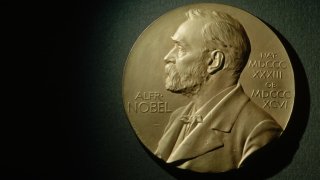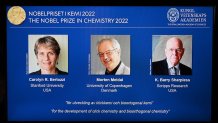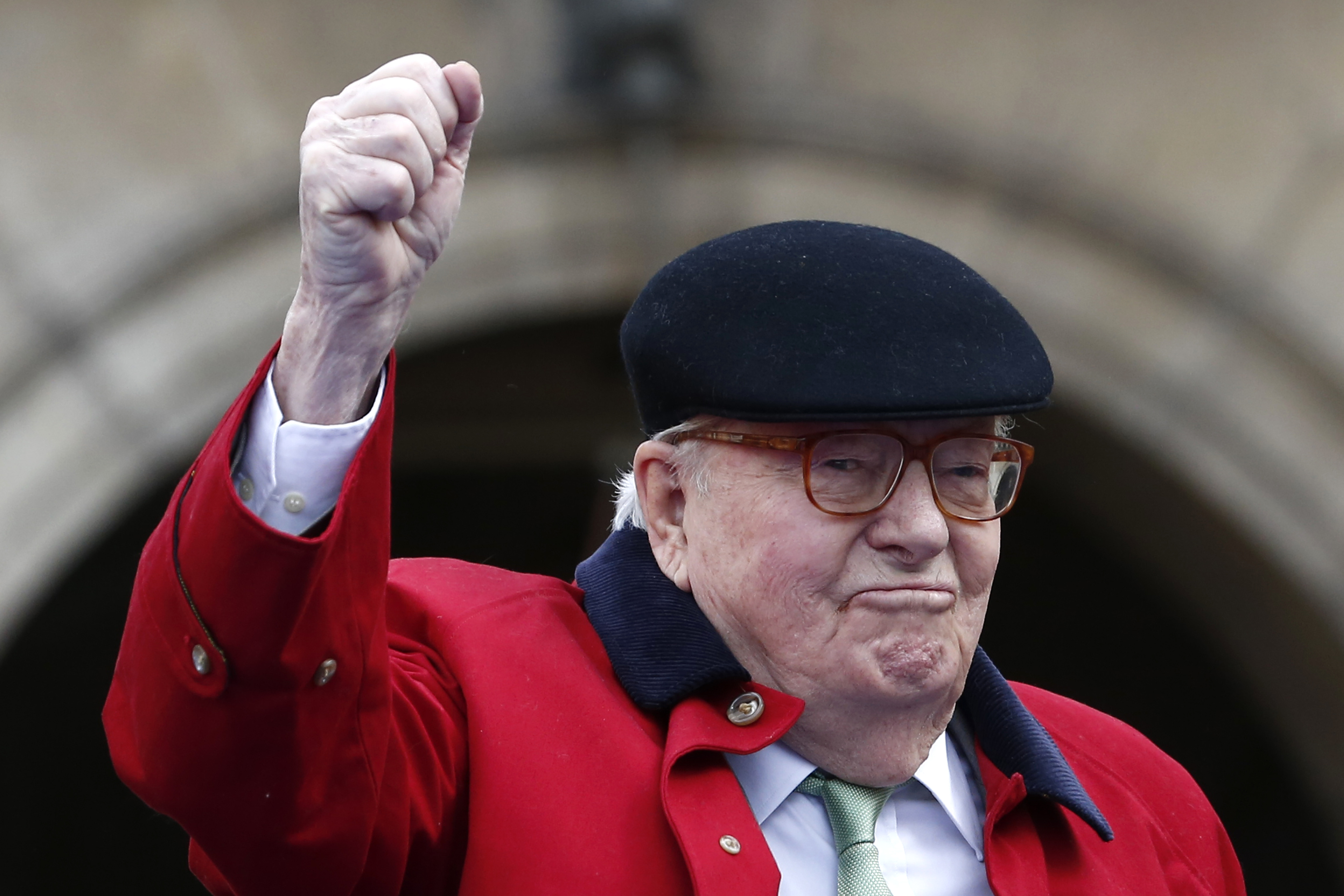
This year’s Nobel Prize in chemistry has been awarded in equal parts to Carolyn R. Bertozzi, Morten Meldal and K. Barry Sharpless for developing way of “snapping molecules together” that can be used to design medicines.
Their work, known as click chemistry and bioorthogonal reactions, is used to make cancer drugs, map DNA and create materials that are tailored to a specific purpose.
Hans Ellegren, secretary general of the Royal Swedish Academy of Sciences, announced the winners Wednesday at the Karolinska Institute in Stockholm, Sweden.
Bertozzi is based at Stanford University in Palo Alto, Meldal is at the University of Copenhagen, Denmark, and Sharpless is affiliated with Scripps Research in La Jolla.
Get top local stories in Southern California delivered to you every morning. >Sign up for NBC LA's News Headlines newsletter.

Sharpless previously won a Nobel Prize in 2001. He is the fifth person to receive the award twice.
Last year the prize was awarded to scientists Benjamin List and David W.C. MacMillan for finding an ingenious and environmentally cleaner way to build molecules that the Nobel panel said is "already benefiting humankind greatly.”
U.S. & World
News from around the country and around the globe
A week of Nobel Prize announcements kicked off Monday with Swedish scientist Svante Paabo receiving the award in medicine for unlocking secrets of Neanderthal DNA that provided key insights into our immune system.
Three scientists jointly won the prize in physics Tuesday. Frenchman Alain Aspect, American John F. Clauser and Austrian Anton Zeilinger had shown that tiny particles can retain a connection with each other even when separated, a phenomenon known as quantum entanglement, that can be used for specialized computing and to encrypt information.
The awards continue with literature on Thursday. The 2022 Nobel Peace Prize will be announced on Friday and the economics award on Monday.
The prizes carry a cash award of 10 million Swedish kronor (nearly $900,000) and will be handed out on Dec. 10. The money comes from a bequest left by the prize’s creator, Swedish inventor Alfred Nobel, in 1895.



